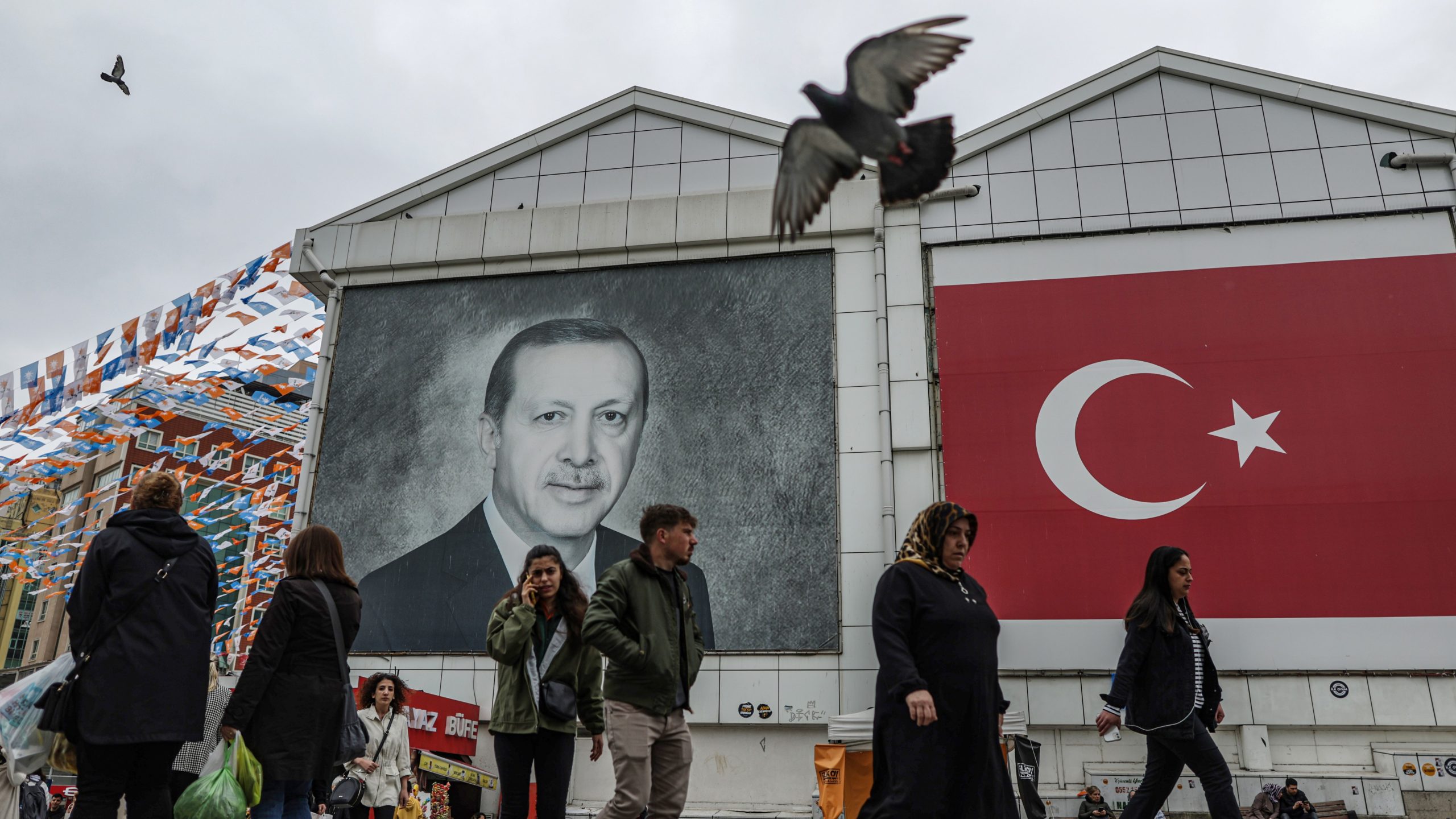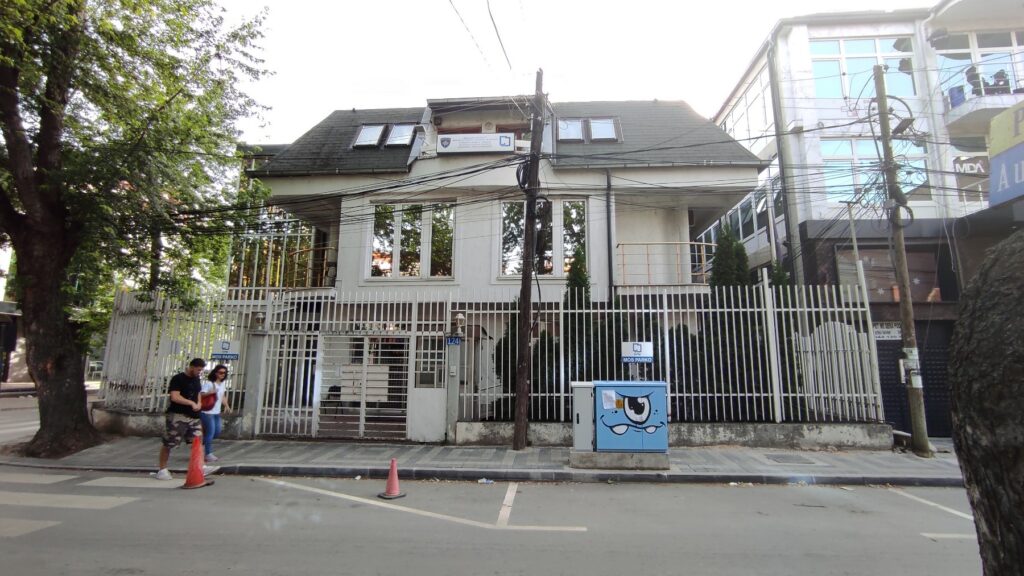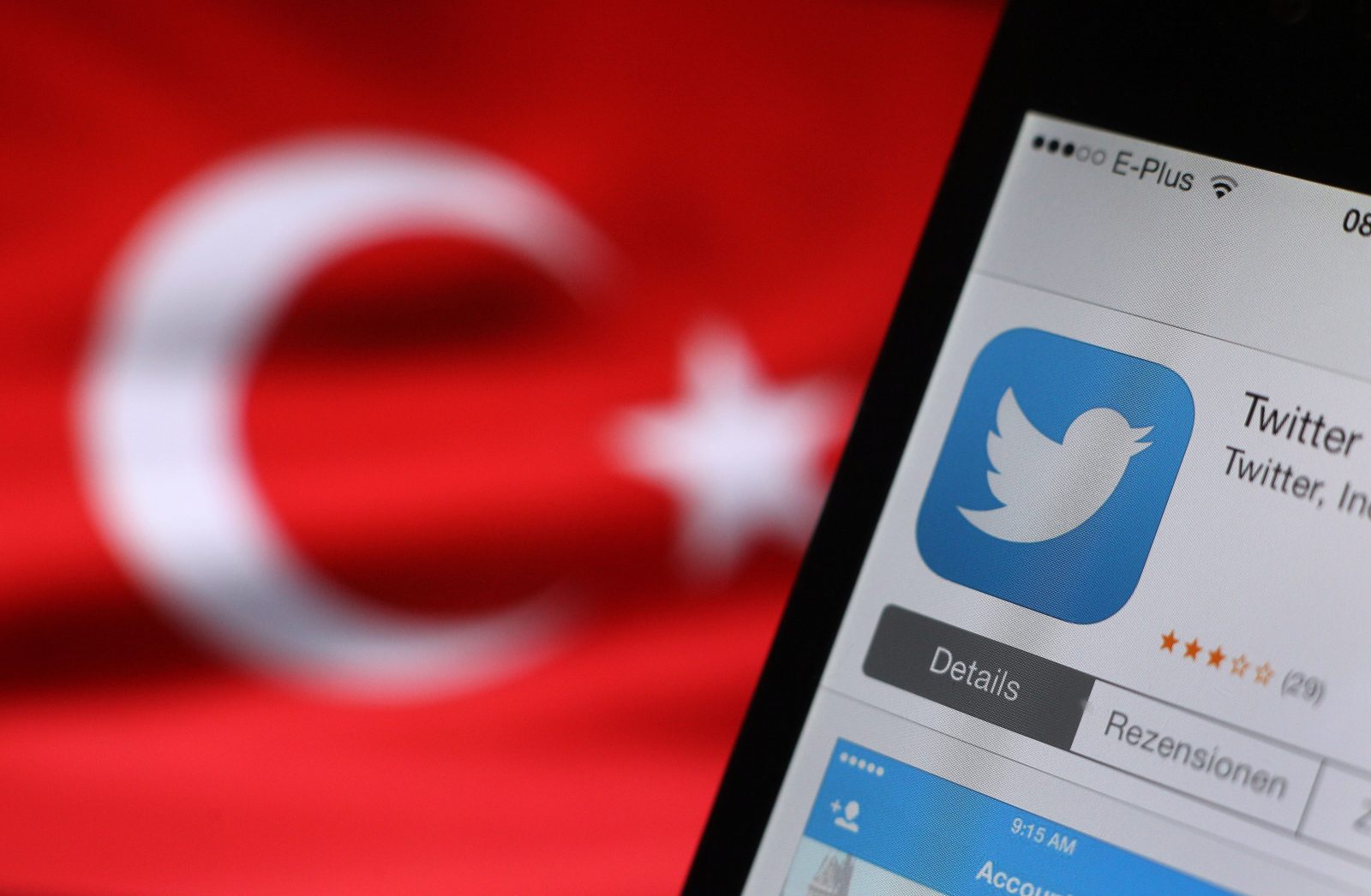The head of the Moldovan Information and Security Service SIS, Alexandru Musteata, told media on Monday that he has signed an order to block 31 websites for spreading pro-Russian disinformation.
Twenty-one of the sites are directly related to Russia, Musteata said. These include the most popular Russian-language websites in Moldova, including the sites of Russian news agency Tass and newspaper Komsomolskaya Pravda.
“The content of the information disseminated by these sites in the public arena can generate tensions or social conflicts,” he said.
Media NGOs criticised the decision, saying the SIS needs to put forward substantial evidence for the shutdowns.
The Audiovisual Council, Moldova’s media regulatory body, also suspended the broadcast licences of six TV stations – Orizont TV, ITV, Prime, Publika TV, Canal 2 and Canal 3. The first two are owned through intermediaries by fugitive Moldovan oligarch Ilan Shor and the other four by another fugitive oligarch, Vladimir Platohniuc.
The suspension of the TV stations’ licences came after a recommendation from the SIS. However, the management of the suspended stations accused the government of unprecedented attacks on the media, arguing that there are no legal arguments for the move. Shor also accused the ruling party of closing down the opposition’s media outlets.
Several media NGOs such as the Centre for Independent Journalism, the Electronic Press Association, RISE Moldova and the Access-Info Centre also expressed concern over the licence suspensions and website closures in the absence of extensive explanations of the factual and legal circumstances that justify the measures.
“The signatory NGOs ask the authorities to communicate without delay the arguments and evidence that were the basis of the decision of the Commission for Exceptional Situations to close these sites and to suspend the license of the six television stations,” the NGOs said in a statement.
But President Maia Sandu argued that the measures were necessary to defend democratic values and protect the country from Russian interference in the electoral process in Moldova.
The Moldovan media landscape is crowded with Russian-language media, although ethnic Russians represent just four per cent of the country’s population.
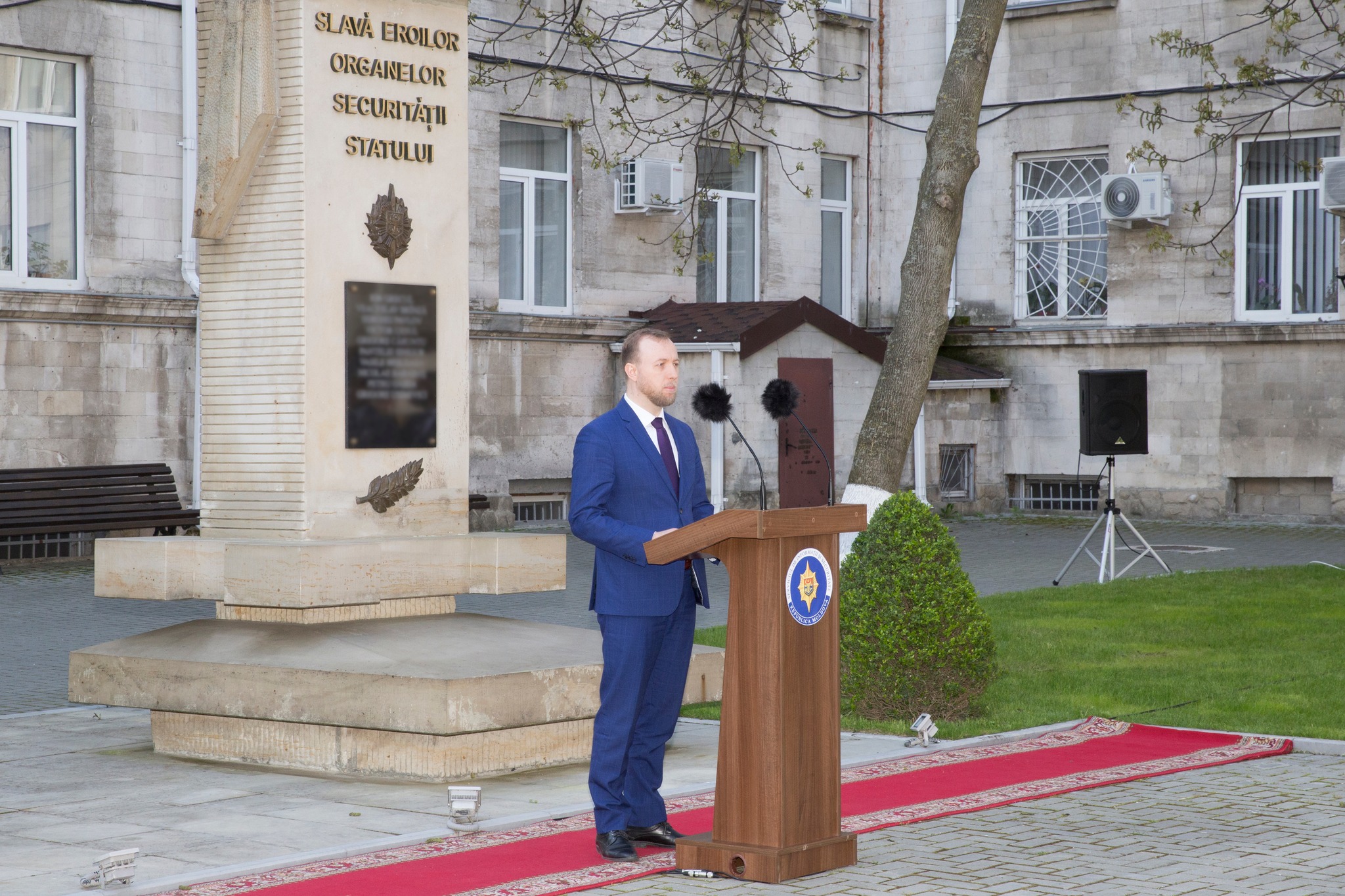
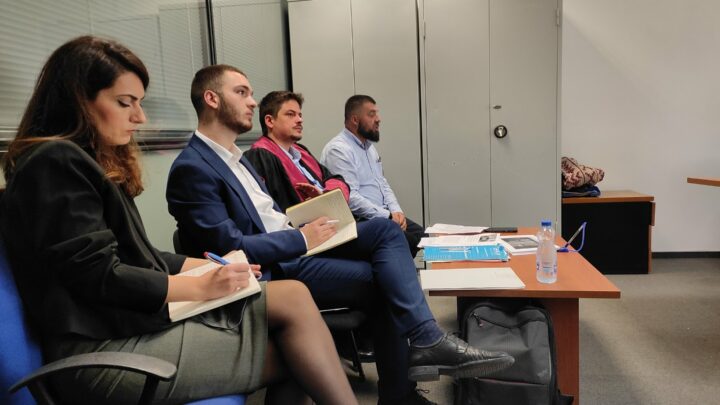
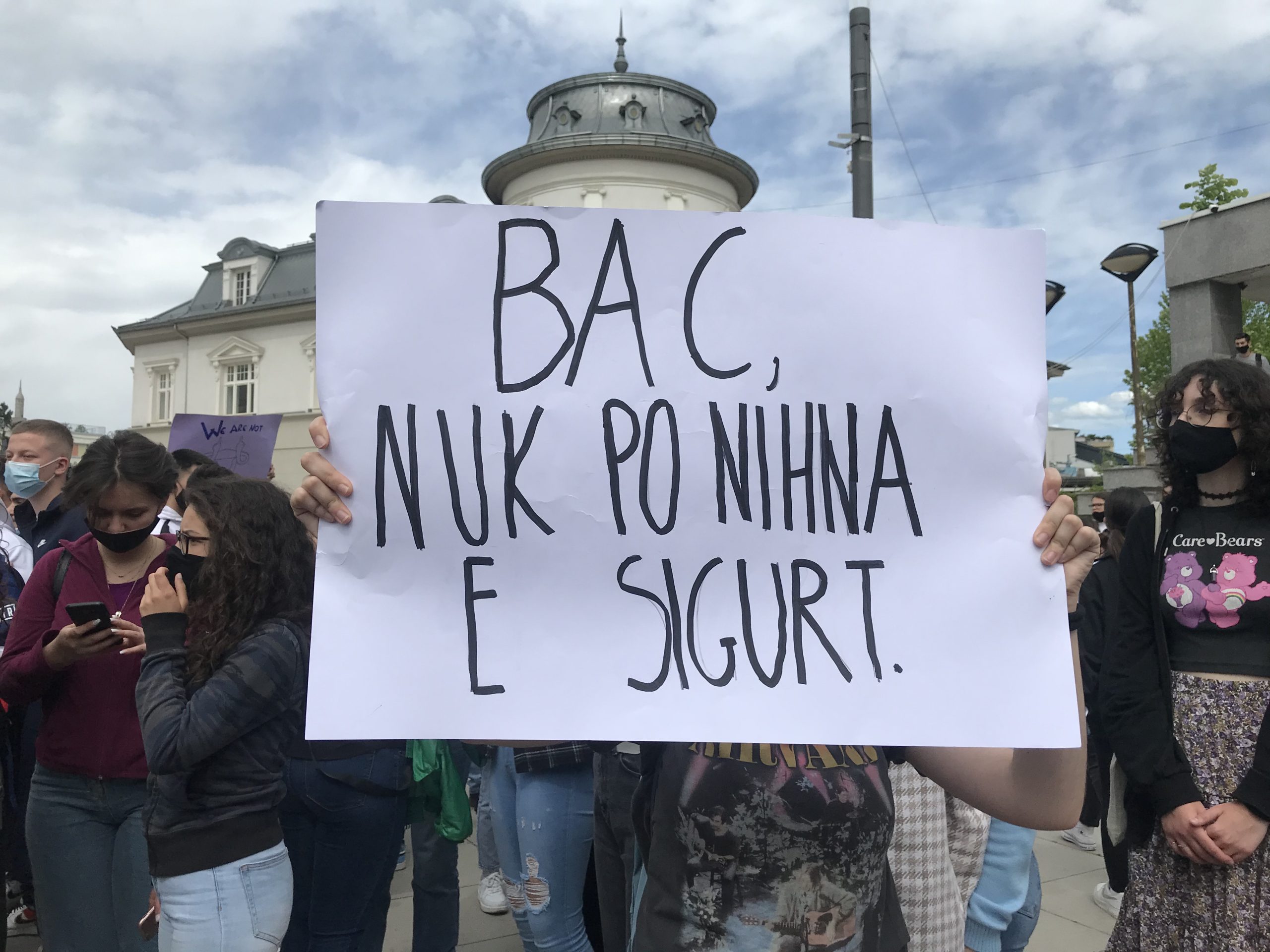



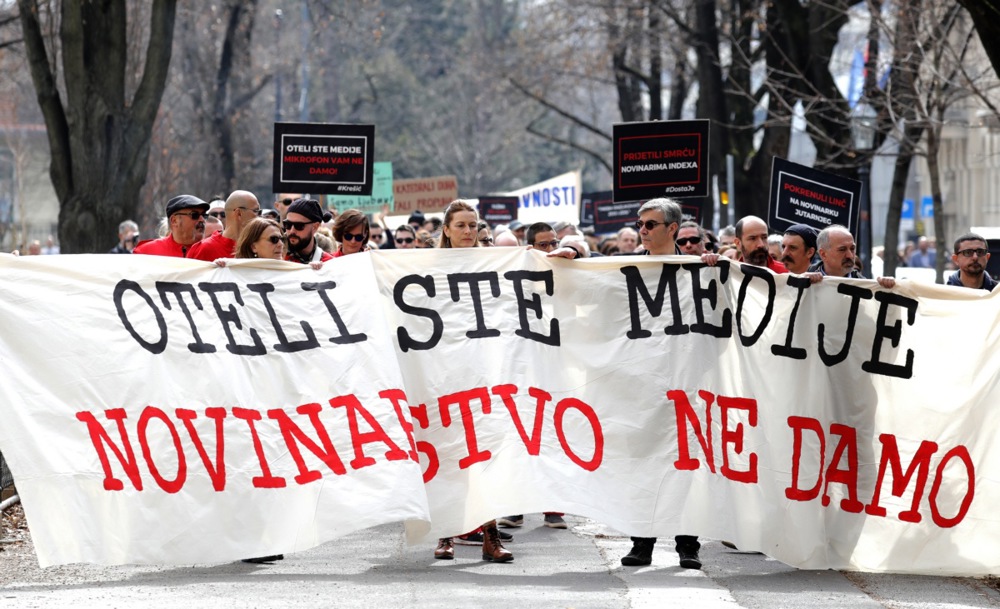
 Last week, a round table on the new law was held at the Croatian Journalists’ Association in Zagreb. Photo: SNH
Last week, a round table on the new law was held at the Croatian Journalists’ Association in Zagreb. Photo: SNH The round table on the new law was attended by a couple of former ministers and several prominent intellectuals. Photo: SNH
The round table on the new law was attended by a couple of former ministers and several prominent intellectuals. Photo: SNH